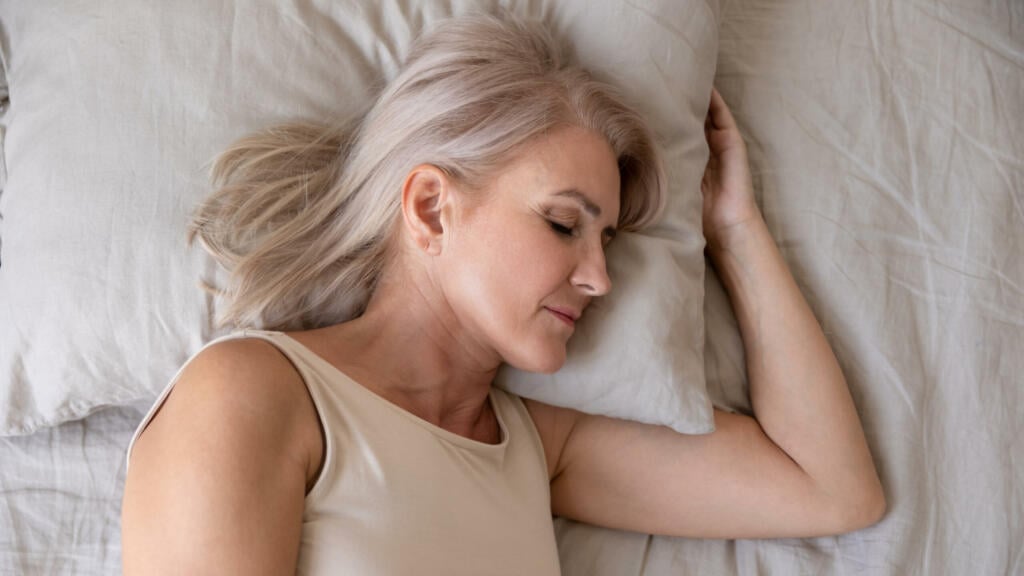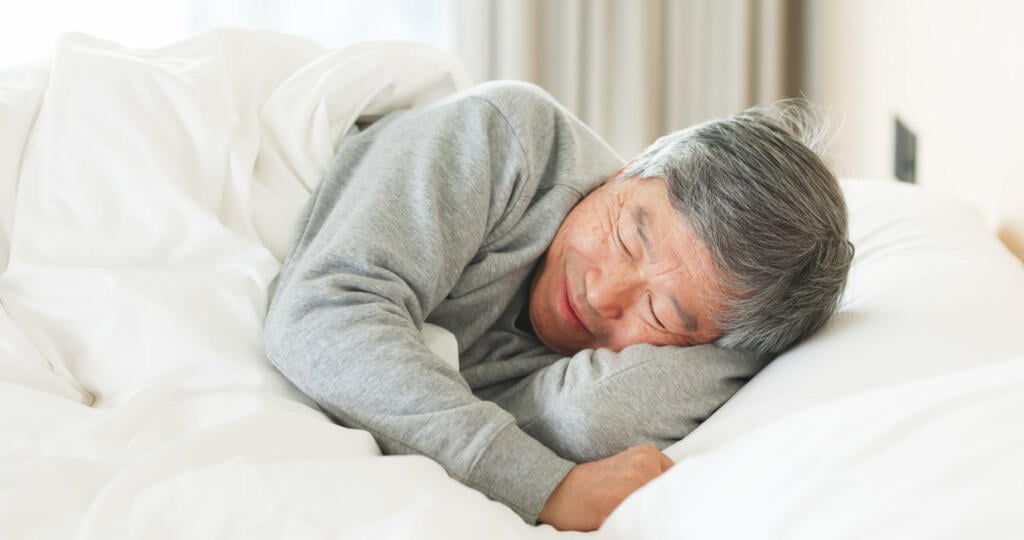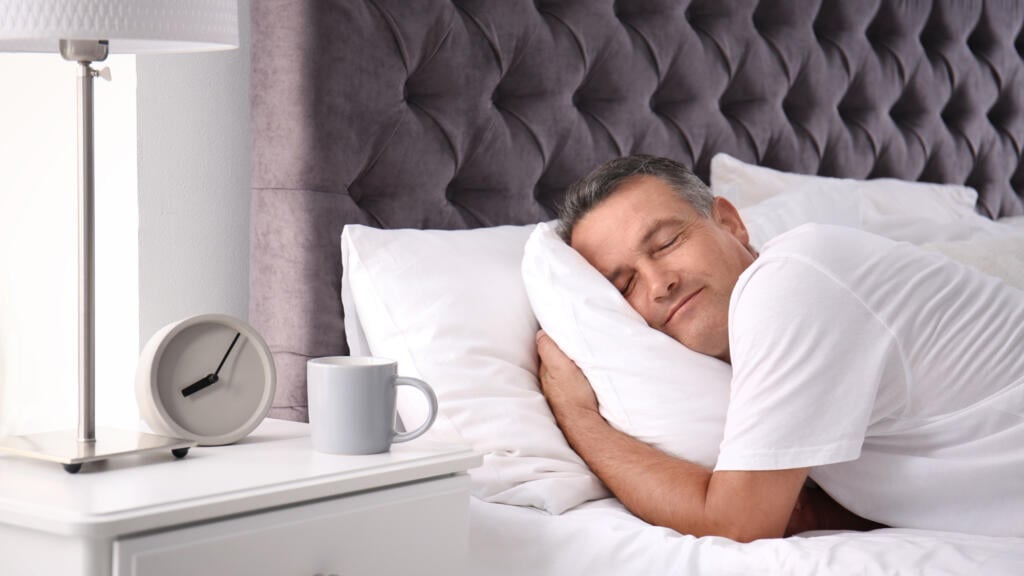
10 sleep truths from the experts
Rebecca Frew
Front, back or side? Which sleeping position is best for you as you get older – and which one you should avoid.
Whether it’s on your back, side, or stomach, everyone has their favourite sleeping position. But did you know as you get older, your favourite way to sleep may not be the best one for you anymore?
In fact, some sleep postures may worsen or actually relieve pain. One study identified that side-lying could be protective against spinal symptoms – but added that more research was needed for it to be conclusive.
Understanding sleep as you age can make a big difference to the length and the quality of your slumber. We’ve spoken to the experts to find out which sleep position is best for you – and which ones to avoid.
Whether it’s on your back, side, or stomach, everyone has their favourite sleeping position. But did you know as you get older, your favourite way to sleep may not be the best one for you anymore?
In fact, some sleep postures may worsen or actually relieve pain. One study identified that side-lying could be protective against spinal symptoms – but added that more research was needed for it to be conclusive.
Understanding sleep as you age can make a big difference to the length and the quality of your slumber. We’ve spoken to the experts to find out which sleep position is best for you – and which ones to avoid.
 Credit: Shutterstock/aslysun
Credit: Shutterstock/aslysunSleeping on your back helps reduce pressure on your spine, says Sammy Margo, sleep expert and physiotherapist from topical joint and muscle pain specialists Deep Relief.
“It can promote spinal alignment – alongside a supportive mattress and pillows. It’s also a good position to sleep in if you have back or neck pain.”
Margo adds that if you have reflux esophagitis, tension headaches or nasal congestion, sleeping on your back can help you, with a pillow supporting your head.
If you’re looking to lessen snoring – or limit the need for a sleep divorce – the advice from Margo is to sleep in a position other than your back. It’s the position where the airway is more likely to collapse, that leads to snoring.
The NHS advises taping or stitching a tennis ball into the back of your sleepwear to stop you rolling onto your back in the night. Margo also advises that if you suffer from sleep apnea you should avoid this position, due to the possibility of your tongue blocking your airway.

Sleeping on your side is generally thought to enable you to rest more comfortably and reduce the risk of interrupted sleep, according to Margo.
Most people say that sleeping on their left-hand side is generally the most comfortable.
“The left side is recommended because it prevents pressure on the liver and facilitates healthy blood flow to the body, kidneys, and heart,” says Margo.
She advises to try sleeping on your side bending your knees upwards towards your chest in a foetal position with a pillow supporting your neck.
Side sleeping is also considered the best sleeping position if you suffer from back discomfort.
“You could also put a pillow between your knees to ease lower back pain, if that’s a problem for you,” Margo shares.
Side sleeping can lead to tightness or soreness in the shoulders, so this position is not good for people with shoulder pain, advises Margo.

Margo says that sleeping on your front can help open the airway and help lessen snoring.
“However, breathing can feel like more of an effort and sleep can be disrupted due to this.”
Sleeping on your front provides the least back support of all the sleeping positions and increases pressure on the spine which can cause pain.
“If you sleep on your front you have to turn your face to one side on the pillow, which twists your neck and spine out of alignment,” Margo explains.
“This can cause spinal issues and back pain over time. A firm mattress, thin pillow and thin pillow under the hips helps to keep the spine aligned.”

Ultimately, a good night’s sleep will do far more for someone’s general health than finding the elusive perfect sleeping position, says physiotherapist Simon Hall.
“In regard to choosing what’s the best sleeping position – regardless of age – comfort is key. Failing to get an adequate night’s sleep is negatively affecting the health of a significant percentage of the population,” he says.
“Stress surrounding maintaining the perfect sleeping position only adds another barrier to getting to sleep efficiently and getting the hours we need.
“Find the position that is most comfortable for you and allows you to get to sleep easily. Once you’re asleep, your body is likely to move about as you sleep anyway.”
If you want a good night’s rest, think about building your own healthy sleeping habits to create the best bedtime routine for you.

Written by Rebecca Frew she/her
Published: Updated:
Becky Frew has written various articles for newspapers and magazines focusing on fitness, is a qualified run leader, and a certified sleep talker trainer who loves to help advise people how they can nod off easier. When she is not writing or reading about fitness, she is at hot pod yoga, bounce class, training for an ultra-marathon or booking anything with a medal and free food at the end.